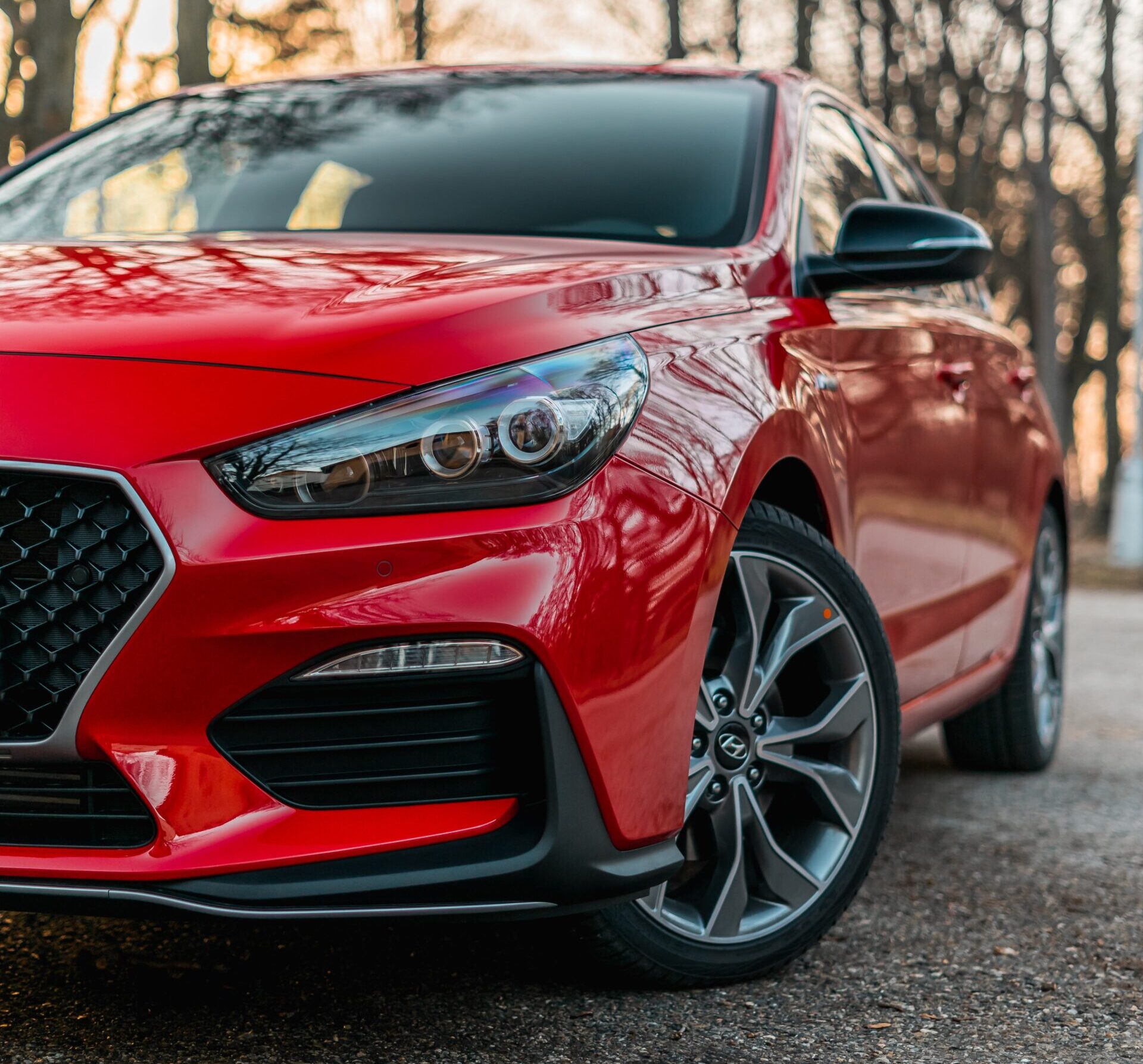Support our educational content for free when you purchase through links on our site. Learn more
Is It a Good Idea to Lease a Car? 10 Key Insights for 2025 🚗
When it comes to getting behind the wheel of a new car, the age-old debate of leasing versus buying can leave many scratching their heads. Is it a good idea to lease a car? 🤔 With the allure of lower monthly payments, the latest tech, and the freedom to upgrade every few years, leasing has become a popular option for many drivers. But before you sign on the dotted line, it’s essential to weigh the pros and cons carefully. Did you know that nearly 30% of new cars in the U.S. are leased? That’s a significant number, indicating that many people are opting for the leasing route.
In this article, we’ll dive deep into the world of car leasing, exploring everything from the benefits and drawbacks to the nitty-gritty of lease agreements. By the end, you’ll have a clear understanding of whether leasing is the right choice for your lifestyle and financial situation. Buckle up, because we’re about to take a thrilling ride through the ins and outs of car leasing!
Key Takeaways
- Lower Monthly Payments: Leasing often results in lower payments compared to buying.
- No Ownership: Remember, you’re essentially renting the car, which means no equity.
- Mileage Limits: Be mindful of mileage restrictions to avoid extra fees.
- Flexibility to Upgrade: Leasing allows you to drive a new car every few years.
- Potential Fees: Watch out for wear and tear charges and early termination fees.
Ready to explore the latest car lease deals? Check out our Latest Car Lease Deals for unbeatable offers!
Table of Contents
Quick Tips and Facts
Understanding Car Leasing: What You Need to Know
The Pros of Leasing a Car: Why It Might Be Right for You
The Cons of Leasing a Car: Potential Pitfalls to Consider
Leasing vs. Buying: Which Option Fits Your Lifestyle?
How to Calculate the True Cost of Leasing a Car
The Leasing Process: What to Expect at the Dealership
Top 10 Cars to Lease in 2023: Our Recommendations
Leasing Terms Explained: What You Should Know
How to Negotiate Your Lease Like a Pro
Common Myths About Car Leasing Debunked
Is Leasing a Car a Good Idea for You? Key Considerations
Background on Car Leasing: A Brief History
Conclusion
Recommended Links
FAQ
Reference Links
Quick Tips and Facts
- Leasing can be CHEAPER than buying… in the short term. 💰
- You don’t OWN a leased car. It’s more like renting a swanky apartment on wheels. 🚗💨
- Mileage limits are REAL. Go over, and you’ll be paying a pretty penny. 💲💲💲
- Worried about wear and tear? Leasing might be your jam! 😎
- Love that new car smell? Leasing lets you upgrade frequently. ✨
Understanding Car Leasing: What You Need to Know
Before we dive into the nitty-gritty, let’s break down the basics of car leasing. Imagine this: you walk into a dealership, not to buy, but to essentially rent a car for a fixed period, typically 2-4 years. That’s the essence of leasing! You get to cruise around in a shiny new ride, and at the end of your lease term, you simply hand the keys back (hopefully without any crumbs in the cupholders 😬).
But hold your horses! Leasing comes with its own set of rules and regulations. You’ll agree to a predetermined mileage limit, and you’ll need to keep the car in tip-top shape to avoid any pesky fees. Think of it like borrowing your friend’s prized vinyl collection – treat it with respect, and everyone’s happy! 😊
Unbeatable Hyundai Lease Deals: Top 10 Offers You Can’t Miss! 🚗 2025
The Pros of Leasing a Car: Why It Might Be Right for You
Let’s face it, the allure of a brand-new car is hard to resist. That new car smell, the latest tech gadgets, and the bragging rights at your next carpool karaoke session – we get it! And that’s where leasing often shines.
- Lower Monthly Payments: This is the big one! Lease payments are generally lower than loan payments for the same car. Why? You’re only paying for the depreciation of the car during your lease term, not the entire value.
- Drive a Nicer Car: Remember that luxury sedan you’ve been eyeing? Leasing might just make it attainable. Those lower monthly payments can open doors (or should we say, car doors?) to vehicles that might be out of reach with traditional financing.
- New Car Perks: Warranty coverage, roadside assistance, and that sweet, sweet new car smell – leasing often comes with a bundle of benefits that make driving a breeze.
- Flexibility to Upgrade: Love staying ahead of the curve? With leasing, you can upgrade to the latest and greatest model every few years without the hassle of selling your old car.
But wait, there’s more! Leasing can also be a smart choice for businesses looking to minimize their tax burden.
The Cons of Leasing a Car: Potential Pitfalls to Consider
Before you sign on the dotted line, let’s pump the brakes for a moment and consider the potential downsides of leasing.
- Mileage Limits: If you’re a road trip warrior or have a long daily commute, pay close attention to those mileage limits! Exceeding them can lead to hefty fees that’ll make you wish you had booked that flight instead.
- No Equity, No Problem? When you lease, you’re essentially renting the car, which means you won’t build any equity. At the end of your lease, you’ll have to decide whether to buy the car outright, lease another vehicle, or walk (or should we say, bike?) away.
- Wear and Tear Worries: Dents, dings, and scratches happen, but they can cost you when you lease. Be prepared to pay for any excessive wear and tear when you return the car.
- Early Termination Fees: Life throws curveballs, and sometimes you need to get out of a lease early. But be warned, breaking up with your leased car can be expensive!
Leasing vs. Buying: Which Option Fits Your Lifestyle?
Ah, the age-old question: lease or buy? It’s like choosing between pizza and tacos – both delicious, but it all comes down to personal preference (and maybe what you’re in the mood for). 🍕🌮
Leasing might be right for you if:
- You crave that new car feeling and like to upgrade frequently.
- You have a predictable commute and don’t put a ton of miles on your car.
- You value lower monthly payments and don’t mind not owning the car.
Buying might be the better option if:
- You plan on keeping your car for the long haul (think 5+ years).
- You clock in some serious mileage.
- You like the idea of owning your car outright and having the freedom to customize it.
Still not sure? Check out our in-depth comparison of Auto Financing Options to weigh the pros and cons.
How to Calculate the True Cost of Leasing a Car
Ready to crunch some numbers? Determining the true cost of leasing involves more than just looking at the monthly payment. Here’s a breakdown of the key factors to consider:
- MSRP: This is the Manufacturer’s Suggested Retail Price, or the sticker price of the car.
- Money Factor: Think of this as the interest rate on a lease.
- Residual Value: This is the estimated value of the car at the end of your lease term.
- Lease Term: How long do you plan on leasing the car?
- Down Payment: Putting money down upfront can lower your monthly payments.
- Sales Tax: Don’t forget about Uncle Sam!
- Acquisition Fee: This is a fee charged by the leasing company.
- Disposition Fee: This fee covers the cost of preparing the car for sale after you return it.
Pro Tip: Use an online lease calculator to estimate your monthly payments and total lease cost.
The Leasing Process: What to Expect at the Dealership
Walking into a car dealership can feel like entering a gladiator arena, but fear not! We’re here to arm you with the knowledge and confidence to navigate the leasing process like a pro.
- Do Your Research: Before you even set foot in a dealership, determine your budget, research different car models, and get pre-approved for financing. Knowledge is power!
- Negotiate, Negotiate, Negotiate: Don’t be afraid to haggle! Negotiate the price of the car, the money factor, and any add-ons.
- Read the Fine Print: That stack of paperwork might seem daunting, but take your time and read through the lease agreement carefully. Pay attention to the mileage limits, wear and tear guidelines, and any fees.
- Get Ready to Drive: Once you’ve signed on the dotted line, it’s time to hit the open road!
Pro Tip: Consider bringing a trusted friend or family member along for a second opinion.
Top 10 Cars to Lease in 2023: Our Recommendations
Looking for a new set of wheels? Our team of automotive enthusiasts has compiled a list of the top 10 cars to lease in 2023, from sporty sedans to spacious SUVs.
- Honda Accord: Known for its reliability, fuel efficiency, and spacious interior, the Accord is a perennial favorite.
- Toyota Camry: Another solid choice, the Camry offers a comfortable ride, plenty of tech features, and excellent resale value.
- Tesla Model 3: If you’re looking to go electric, the Model 3 is a stylish and technologically advanced option.
- Audi A4: For those who crave a touch of luxury, the A4 offers a refined driving experience and a well-crafted interior.
- BMW 3 Series: The 3 Series is a classic choice for a reason, with its sporty handling, powerful engine options, and luxurious cabin.
- Lexus ES: The ES is known for its smooth ride, quiet cabin, and reputation for reliability.
- Genesis G70: The G70 is a relative newcomer to the luxury sports sedan segment, but it’s already making waves with its sharp styling, engaging driving dynamics, and competitive pricing.
- Volvo XC60: The XC60 is a stylish and safe SUV that’s packed with features.
- Acura RDX: The RDX offers a blend of luxury, performance, and value.
- Cadillac XT5: The XT5 is a stylish and comfortable SUV that’s packed with technology.
Pro Tip: Check out our Latest Car Lease Deals for the best offers on these popular models.
Leasing Terms Explained: What You Should Know
Lease agreements can feel like they’re written in a foreign language, but don’t worry, we’re here to decode the jargon!
- Gross Capitalized Cost: This is the agreed-upon price of the car, including any add-ons or options.
- Capitalized Cost Reduction: This is any money you put down upfront to lower your monthly payments, such as a down payment or trade-in value.
- Residual Value: We’ve covered this before, but it’s worth repeating! This is the estimated value of the car at the end of your lease term.
- Money Factor: Think of this as the interest rate on a lease.
- Lease Term: This is the length of your lease, typically expressed in months.
- Mileage Allowance: This is the number of miles you’re allowed to drive each year without incurring penalties.
- Excess Wear and Tear: This refers to any damage to the car beyond normal wear and tear.
How to Negotiate Your Lease Like a Pro
Negotiating a car lease can feel like a high-stakes game of chess, but with the right strategy, you can drive away with a deal that’ll make you feel like a champion. 🏆
- Know Your Credit Score: Your credit score plays a big role in determining your lease terms. Check your credit report before you head to the dealership and dispute any errors.
- 👉 Shop Around: Don’t settle for the first offer you receive! Get quotes from multiple dealerships to compare prices and lease terms.
- Focus on the Money Factor: The money factor is often negotiable, so don’t be afraid to ask for a lower rate.
- Negotiate the Capitalized Cost: Just like when buying a car, you can negotiate the price of the vehicle.
- Be Prepared to Walk Away: The most powerful tool in any negotiation is your willingness to walk away. If you’re not happy with the deal, don’t be afraid to say no.
Pro Tip: Consider using a car buying service to negotiate on your behalf.
Common Myths About Car Leasing Debunked
Let’s separate fact from fiction and debunk some common myths about car leasing.
- Myth #1: Leasing is always more expensive than buying. This isn’t always true! While leasing can be more expensive in the long run, it can also be more affordable in the short term, especially if you don’t drive a lot of miles.
- Myth #2: You can’t get out of a lease early. While it’s true that breaking a lease can be costly, there are options available, such as lease transfer services.
- Myth #3: You’re stuck with the car for the entire lease term. Some lease agreements offer early buyout options, allowing you to purchase the car outright before the end of your lease.
Is Leasing a Car a Good Idea for You? Key Considerations
So, is leasing the right choice for you? Ultimately, the decision comes down to your individual needs and circumstances.
Consider leasing if:
- You value lower monthly payments and flexibility.
- You enjoy driving a new car every few years.
- You have a predictable commute and don’t drive a lot of miles.
Consider buying if:
- You plan on keeping your car for the long haul.
- You want to build equity in your vehicle.
- You clock in a lot of miles.
Pro Tip: Talk to a financial advisor to determine the best option for your financial situation.
Background on Car Leasing: A Brief History

Believe it or not, car leasing has been around for decades! The concept emerged in the 1950s as a way for businesses to acquire vehicles without the large upfront costs of purchasing. Over time, leasing gained popularity among consumers, and today, it’s a common way to get behind the wheel of a new car.
Conclusion

So, is leasing a car a good idea? The answer isn’t black and white. Leasing offers a plethora of benefits, like lower monthly payments, the ability to drive a new car every few years, and the perks of warranty coverage. However, it also comes with its downsides, such as mileage limits, no equity build-up, and potential fees for wear and tear.
In summary, if you enjoy the latest models, prefer lower payments, and don’t drive excessively, leasing might be the perfect fit for you. On the flip side, if you plan to keep your vehicle long-term or rack up the miles, buying could be a smarter choice.
Ultimately, it’s about weighing your personal circumstances and preferences. So, whether you’re cruising in a sleek Honda Accord or a luxurious Audi A4, make sure you’re making the choice that aligns with your lifestyle and financial goals! 🚗✨
Recommended Links
👉 Shop the Best Car Lease Deals on:
- Honda Accord: TrueCar | Edmunds | Honda Official Website
- Audi A4: TrueCar | Edmunds | Audi Official Website
- Tesla Model 3: TrueCar | Edmunds | Tesla Official Website
FAQ

What are the pros and cons of leasing a car compared to buying one?
Pros of Leasing:
- Lower monthly payments.
- Access to newer models with the latest technology.
- Warranty coverage for the duration of the lease.
Cons of Leasing:
- No ownership or equity in the vehicle.
- Mileage limits that can incur extra fees.
- Potential costs for excessive wear and tear.
Read more about “Unlock the Best Honda Lease Deals: 10 Must-See Offers for 2025! 🚗”
How do car lease payments work and what factors affect the monthly cost?
Car lease payments are calculated based on the vehicle’s depreciation, the money factor (similar to interest), and the lease term. Key factors include:
- MSRP: Higher-priced cars lead to higher payments.
- Residual Value: A higher residual value means lower payments.
- Down Payment: A larger down payment can reduce monthly costs.
What are the typical requirements to qualify for a car lease, such as credit score and income?
Most leasing companies require a good credit score (typically 700 or higher) and proof of stable income. They may also look at your debt-to-income ratio to ensure you can afford the lease payments.
Can you negotiate the price of a leased car, and if so, what are some effective negotiation strategies?
Yes, you can negotiate! Effective strategies include:
- Researching the vehicle’s market value.
- Comparing offers from multiple dealerships.
- Focusing on the capitalized cost rather than just the monthly payment.
How long are typical car leases, and what are the penalties for terminating a lease early?
Typical leases last between 24 to 36 months. Early termination can lead to significant penalties, often including the remaining payments due and additional fees for early termination.
Read more about “Are Car Leases Still Worth It? 10 Reasons You Need to Know! 🚗 …”
What happens at the end of a car lease, and what are the options for returning or purchasing the vehicle?
At the end of a lease, you can return the vehicle, purchase it for the residual value, or sometimes extend the lease. Make sure to inspect the car for any damages to avoid extra charges.
Read more about “Unbeatable Hyundai Lease Deals: Top 10 Offers You Can’t Miss! 🚗 …”
Are there any additional fees associated with leasing a car, such as mileage limits or wear and tear charges?
Yes, common fees include:
- Mileage Overages: Charges for exceeding the agreed mileage limit.
- Wear and Tear Fees: Costs for any excessive damage beyond normal wear.
- Disposition Fee: A fee for returning the vehicle at the end of the lease.
How does leasing a car affect your insurance costs, and are there any specific insurance requirements for leased vehicles?
Leased vehicles typically require full coverage insurance, which can increase your premiums. Some leasing companies may also require gap insurance to cover the difference between the car’s value and the remaining lease balance if totaled.
Can you lease a used car, or are leases only available for new vehicles?
While most leases are for new vehicles, some dealerships offer leases on certified pre-owned cars. However, the options may be limited compared to new models.
What are the benefits of leasing a car for business purposes, and how can it impact tax deductions?
Leasing a car for business can provide tax benefits, as lease payments may be deductible as a business expense. Additionally, leasing allows businesses to keep their vehicle fleet updated without large capital expenditures.
How do you calculate the total cost of a car lease, including all fees and charges, to determine if it’s a good deal?
To calculate the total cost of a lease:
- Add the total of all monthly payments.
- Include any down payment, acquisition fees, and disposition fees.
- Factor in potential mileage overage fees and wear and tear costs.
Are there any specific lease deals or promotions that can help you get the best value for your money?
Many dealerships offer seasonal promotions or special lease deals on specific models. Always check with multiple dealerships and online platforms for the latest offers.
What are the most important things to consider when comparing car lease offers from different dealerships or lenders?
When comparing lease offers, consider:
- The capitalized cost and money factor.
- Mileage limits and penalties.
- Any additional fees or incentives.
- The overall terms of the lease agreement.
Reference Links
- Chase: Pros and Cons of Leasing a Car
- Edmunds: Car Leasing 101
- Consumer Reports: Car Leasing
- NerdWallet: Car Leasing Basics
- Kelley Blue Book: Leasing vs. Buying
- Money With Katie: Why Leasing a Car is Like Setting Money on Fire
With this comprehensive guide, you’re now equipped to make an informed decision about whether leasing a car is the right choice for you. Happy driving! 🚗💨

